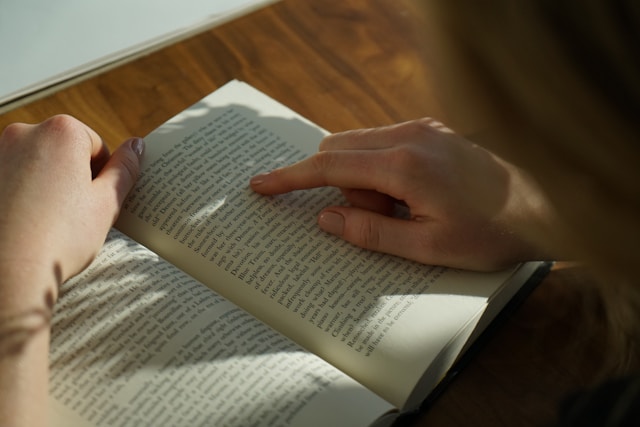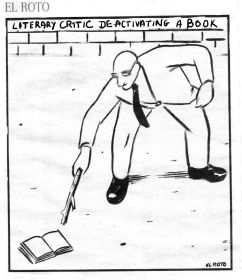Literature
|
|
Why teach literature in a language course?
"...airy-fairy stuff ... too difficult ... not what they really need ... boring ... out-dated ... way above their heads ... it's all internet now, anyway ... give 'em solid grammar ... pretentious ..."
In the time that I have been teaching English B, I have seen the full swing of the pendulum. Before 1992, Language B was heavily literary, with set books, practical commentary, literary essays. Then came the Cultural Revolution, and the L-word was suddenly not to be mentioned because language should be taught for real practical purposes in the real world, and not for literary navel-gazing.
Literature is back! The now-current Subject Guide, from 2011, has brought the teaching of literature out of the closet again, as a mandatory element at Higher level, and an option at Standard level.
There is a discussion of the answer(s) to the question that heads this page under Why teach literature?
Extensive & intensive reading
This distinction is the basis for the approach taken in this site :-
Reading Good Reads
... recommends a number of full length texts, usually but not always novels, which have great potential as a class reader.
The significance of extensive reading is that it requires mental skills not exercised by dealing with handouts with a maximum of, say, 400 words. reading even a short novel demands that students learn how to construct a complex model of plot and characters, cross-refer details from intensive reading, and become involved in a whole different world.
Texts for Literary Skills
... presents an analysis of what is meant by 'literary skills', justified in terms of overall language competence, and a range of texts focused on the teaching of such skills.
The significance of intensive reading is that it requires close attention to the precise meaning of language, to the way that words, and even the simplest of sentences, may have complex levels of meaning, and require active interpretation on the part of the reader. This process of detailed reflection should help to develop not only the receptive but also the productive skills, through expanding knowledge of vocabulary and the precise use of phrasing.
...and that cartoon?
El Roto is a brilliant cartoonist whose work appears every day in 'El Pais'. He has a radical, sardonic view of the world, which he expresses in concise, forceful images. Have a look at Google's collection of El Roto images - sadly, you'll need to understand Spanish for some of them, but you'll get the point of many, if only because of the skilful drawing.
Selected Pages

Literature
Short Stories Free
Short stories are excellent to use as one or more of the required literary texts for HL. They also work well as supplemental...

Literature
Soft City Free
This is one of my most successful texts ever. By 'successful' I mean that it engages the students' attention, and they get...
Literature
Literary Reading Skills Free
Or, more to the point, what happens when we read well ? The structure of this part of the site crystalised itself out of...

Literature
Wise & foolish
All pieces of writing have a point - they have a purpose and meaning. Nobody says "it was fantastic - I couldn't see the...
Literature
Wings
This passage comes from a science fiction novel - but in a sense, every novel introduces us to a brave new world in a different...
Literature
Two texts, compared
For Advanced groups of students, compare & contrast is very often seen as a classic type of exercise in literary criticism...





